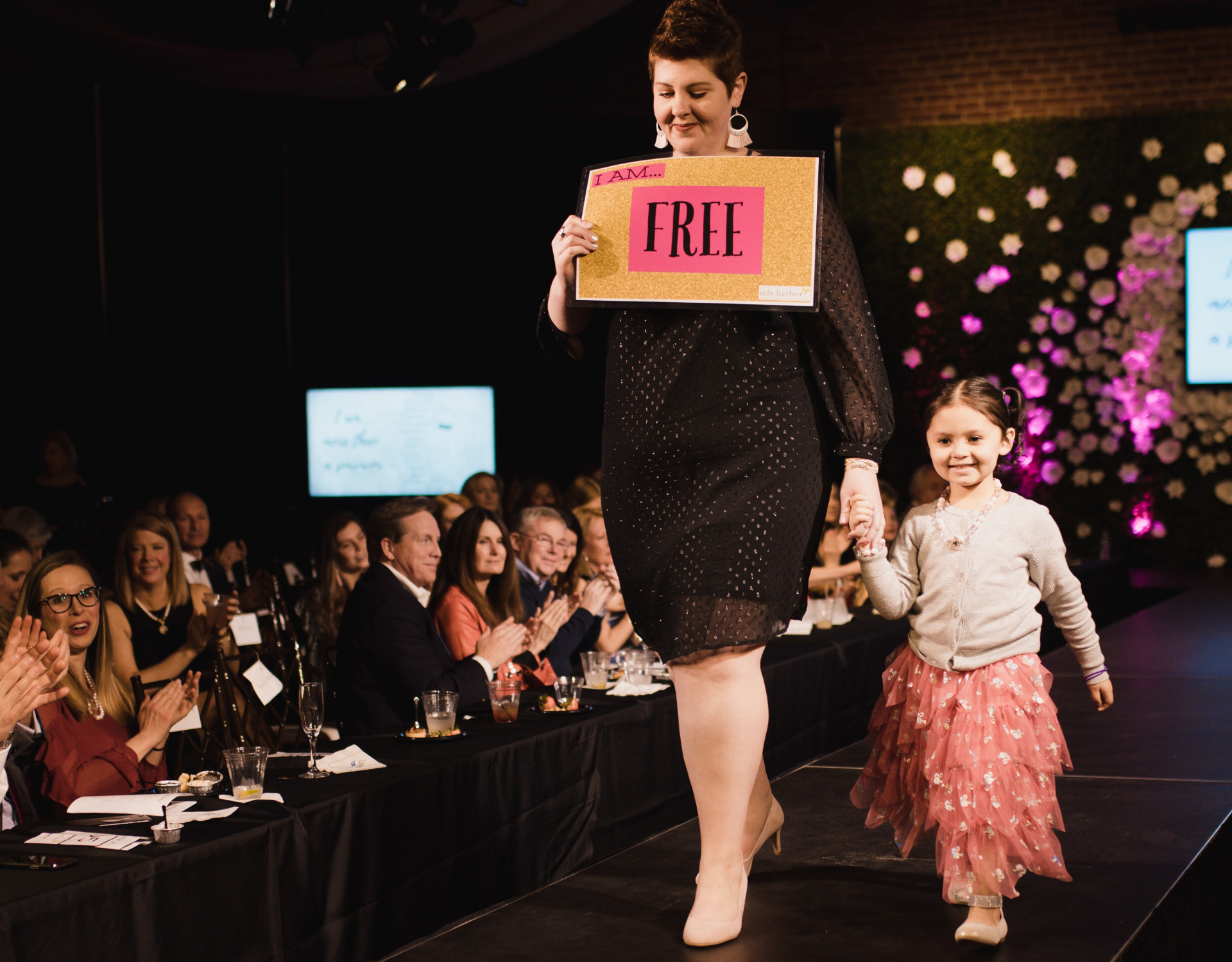by Carrie Pettit, Community Counselor Supervisor, Safe Harbor
Whenever I’m introduced to new people in my personal life I am inevitably asked what I do for a living. When I tell them that I am a counselor at Safe Harbor and explain that Safe Harbor is an agency that assists victims of Domestic Violence, I get a few reactions. The most popular is what I call the “good for you” response, and then I get the “I could never do that” response. But what I’m struck with the most is that almost without fail I am told by this stranger that I’ve just met that their sister, neighbor, best friend, aunt, mom, cousin, classmate, workmate, etc. is a victim of Domestic Violence. I know that, as a professional in the field who is aware of the staggering statistics that DV is the leading cause of injury to women and that at least 1 in 4 women are or have been victims of DV, I shouldn’t be surprised. Yet every time I am, just a little.
What comes next in my conversation with this person I’ve just met is typically about how frustrated, scared, and at a loss they are in how to help the victim of Domestic Violence that they care about. I listen and nod my head and try to help as much as I can, but to be honest I am often at a loss as to what advice I should give to these people to help. Because, the truth is that caring about someone who is experiencing Domestic Violence is incredibly difficult and scary and oftentimes so very sad and there is no easy or quick fix available. Yet, I realized very quickly that this question was not going to go away. So, in order to find an answer that could actually help people who have a loved one experiencing Domestic Violence, I started asking myself, what would my clients say to their loved ones if they could verbalize what they need? In asking myself that question, I came up with a list of Do’s and Don’ts that will hopefully be a guide for people who have someone in their life experiencing Domestic Violence.
Do:
Document if you ever notice any injuries or if any are reported to you. Also document any arguments you may witness between your loved one and their partner.
Reach out to your loved one even if they are isolated by their partner. Isolation is one of the key ways abusers gain and retain control. Thus the more contact you have the more hope a victim of DV will have for help.
Provide unconditional/non-judgmental support to your loved one. You may not agree with their decisions, but let them know that you are there for them no matter what.
Let them talk about what is going on with them if they are willing. Let them talk about the good (because there is some good), the bad (even if it breaks your heart), and the ugly. Having someone to talk to about the abuse is often one of the first steps to figuring out a way to leave the abusive relationship.
Provide them with possible resources such as Safe Harbor to let them know they are not alone in this process. And leave the door open for them to make the best decision possible for themselves at that time.
Don’t:
Tell them what to do. It is often very frustrating to us as to why a victim of Domestic Violence doesn’t just leave, but unless they make the decision for themselves, it won’t stick. Instead, discuss with them what all of their options are, both in staying and leaving.
Make ultimatums about choosing to leave their abusive partner. This will create a situation where they are forced to choose not between two people, but rather between a loved one and some major consequences from their partner.
Recommend couples counseling or marriage counseling as a solution. Oftentimes this seems like the best way to address the issues, especially if your loved one is telling you they want to salvage the relationship. However, couples counseling can potentially be very dangerous for the victim of abuse, as an abuser will often use couples counseling as a means to further control and manipulate their victim. Instead, recommend your loved one to focus on seeking individual counseling first before they attempt couples counseling.
Tell them everything will be ok. As we can so often see on the news, Domestic Violence can be deadly. Just this week in NC, a woman was shot by her husband, who was a Law Enforcement Officer. It is appropriate to let your loved one know just how scared you are for their physical or emotional safety and well-being. In fact, most victims are so isolated and confused that they often do not register this fear themselves. Thus having a loved one point it out can be crucial in their decision to get help or leave.
Try to figure out everything by yourself. Involve other loved ones and utilize community resources like Safe Harbor to educate yourself about Domestic Violence and possible pathways to getting your loved one help.
The bottom line when it comes to helping someone who is a victim of Domestic Violence is to simply be there for them. Believe them and let them know that you are there to help, even if they can’t call for months, or if they aren’t allowed to see you anymore. One of my former clients said it best when she said, “I needed someone who wouldn’t give up on me the way I had so completely given up on myself. I needed someone to care about me when I had no care whatsoever for myself.” Love and care is not always easy – especially when you care about someone who is being abused – but, in the end, it can be the thing that saves a life.





